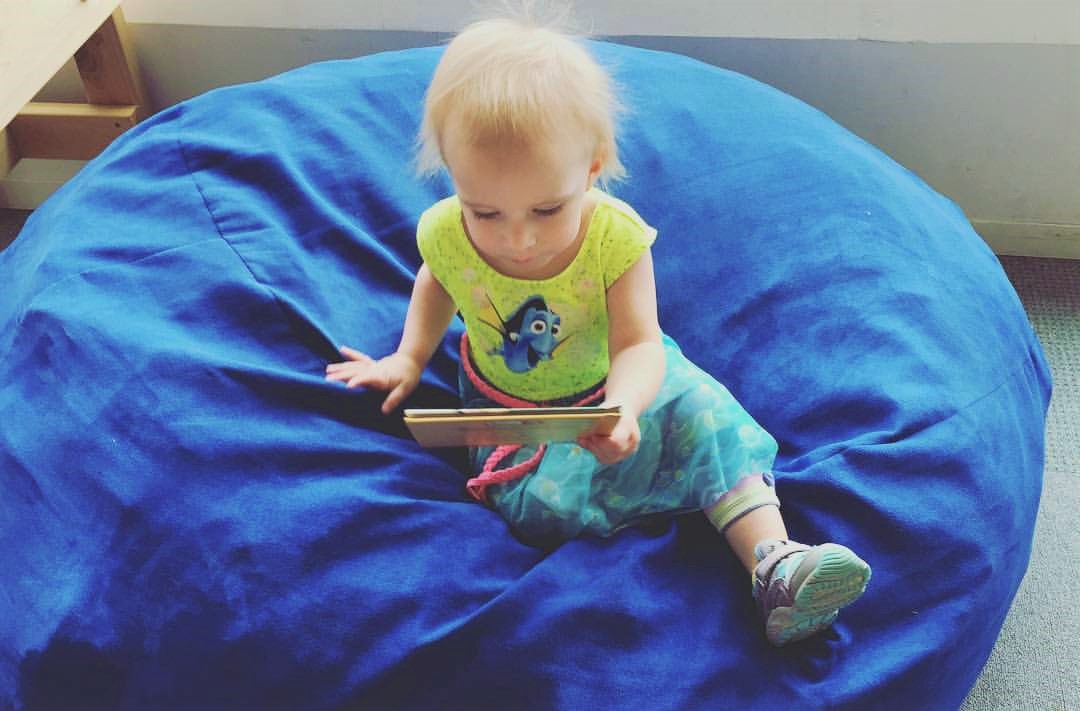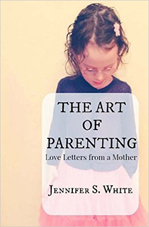It’s Too Easy to Tell Moms to Get off Their Phones
How to parent like a grown up in the age of smartphones:
It’s easy to tell mothers that we should never look at our cell phones during the day with our kids.
It’s good advice to check our email on a schedule, of maybe two or three times a day, whether we’re parents at home or in an office.
It’s science-backed that multi-tasking does not exist.
Yet life—and a day of motherhood—often does not go as planned.
This morning, for instance, I had promised myself that I would totally ignore the world-wide web and focus solely on my baby—and then I went into another day of my personal website being down. While I have to acknowledge that it can wait—almost anything can wait—I also need to admit that dealing with a glitch like this won’t get easier as my afternoon goes on, and my other daughter is home from preschool.
In other words, when do we choose to ignore the outside world in order to be present with our children, and when do we cut ourselves some slack?
It’s not completely fair to pretend that we are neglectful mothers or fathers if we check Facebook a handful of times a day. After all, when I grew up we still had phones, and I remember my mother talking on it sometimes—it just had a cool cord connected to the wall to twirl fingers around—and my parents read articles, just from newspapers rather than a smartscreen. Is this really that different?
Perhaps the significant difference is that there was more transparency in what they were doing. This is one reason why I’ll occasionally offer to my daughters, as they watch me pick up my iPhone, that I’m texting their nana back, or that I’m finishing up reading that blog I started while I was breastfeeding.
Still, I’m the parent, and I don’t necessarily feel that I need to justify everything I do to my kids, even if I do want to explain my actions a little. Because I don’t want my girls growing up feeling that mom was always on her phone or, even worse, that they were unloved. More, I’m the kind of mom who does play with my kids. Do I play with them all the time? No, of course not, because they play together without me, and this benefits both of us.
Like it or not, I have adult things that need done around the house, and I put as much of it on hold as I can during my day home with my children. This means explaining to my husband when my oldest daughter was a baby that I’m a stay-at-home mom, not the maid, not the solo cleaning crew, not the mommy laundry machine. It means that the dishes are often done at night when both my husband and myself are home, and a lot of our laundry gets done on the weekend. Regardless, I want my daughters to see their dad and mom perform household tasks.
I might not have laundry day, or house cleaning day, or ironing day like my own nana had when my mom was little. Hell, I don’t even own an iron. This said, taking care of chores, texting a loved one back, and working on my writing is part of living my grown-up life—and more than anything, my children need me to display to them healthy boundaries. They need me to show them by example how to be a grown up.
I want to show my daughters how to clean up the house, do the dishes, and wash clothes because that’s part of being a functioning adult, not because it’s something I have to do as “Mom.” And I am a writer. I’m working on my next book, and I typically blog several new posts a week. This means that I am sometimes stealing moments here and there when they play together to get some of my own work done.
But showing my girls how to be a grown up means not always texting someone back. It means knowing that it’s time to put my phone away and read a book with them. It means knowing my own proper boundaries, and how to use devices healthfully so that they add rather than detract from our life.
I mess up.
There are definitely times that, in retrospect, I should have stopped working, or I should have gotten off Facebook and simply danced with them instead. Another part of being a grown up is also understanding that I’m not perfect, that I will make mistakes, and learning how to move forward into a new moment and a new opportunity to behave better, and not get stuck in guilt.
I don’t want to teach my daughters guilt and shame, but I don’t want them to think that so-and-so’s random Instagram picture was more important than being here in this one and only childhood that they will ever have. So this means that I don’t write everything I think of. It means I’m more out of touch with the news than I used to be, or than I will be when they’re both in school. It means being as OK as I can be with “Mom” coming before “writer,” at least for now, and it means knowing that not every email needs an immediate reply.
Loving myself this way helps me teach my girls self-love. This is what I really need to be doing, more than allotting myself a certain number of minutes or hours on my phone each day—I have to love myself enough to not respond to every message, and to give myself the chance to enjoy my life as their mom.
My oldest is already moving forward educationally, and I’m already having to process these emotions of what it will be like when she’s not home for lunch. I want to sob just having typed that last sentence. Having an awareness of the importance of these mundane aspects of raising children—of their snuggles, and their wet kisses, and the opportunities to read to them, and to have lunch together—is what keeps me from picking up my phone all the time. It’s why my phone is usually on vibrate in another room.
And, sure, it’s easy to tell parents to get off our phones and always place our important children first, but impractical idealism isn’t helpful.
Realistically, having this connection with the outside world, and with long-distance family and friends, helps me maintain the woman that I am outside of my important role as “Mom.” Ultimately it’s this balance that’s beneficial.










